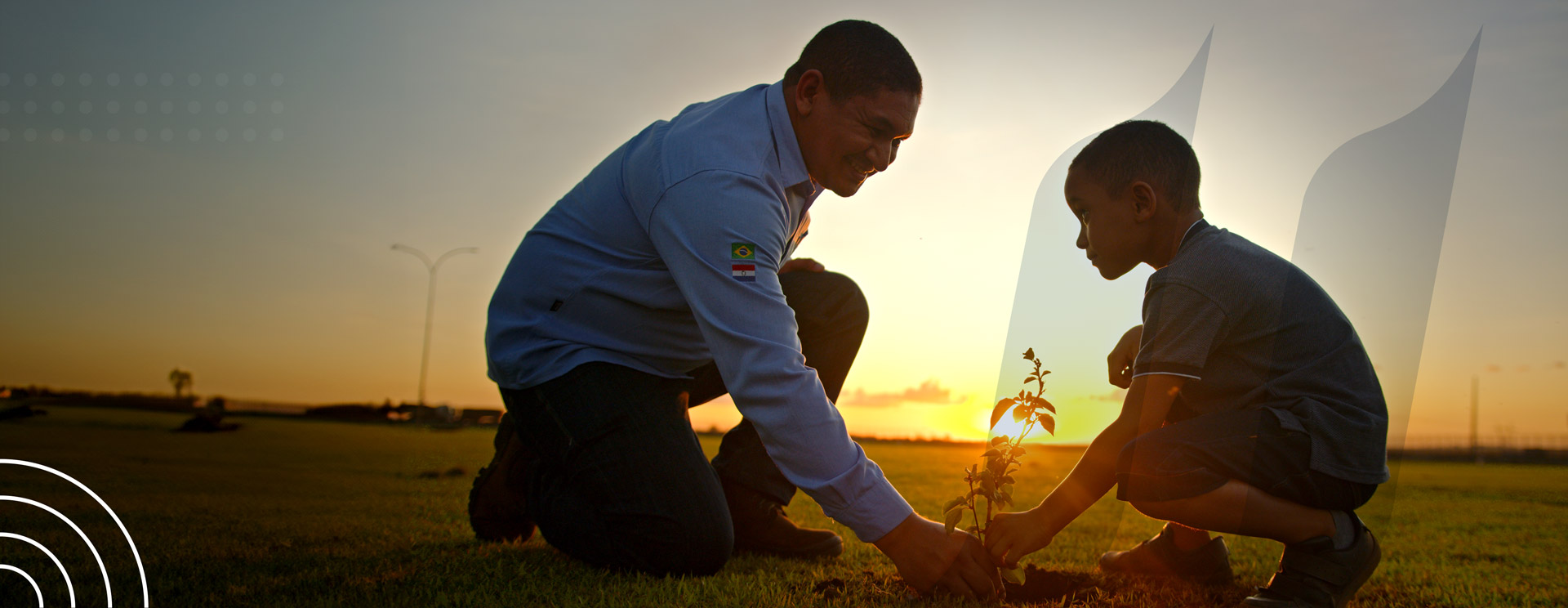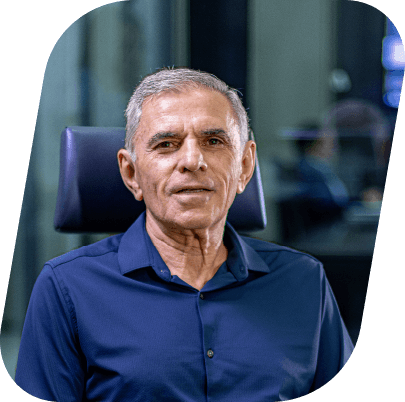






The year of 2023 was marked by the consolidation of ESG towards our mission of offering clean solutions to the planet, in addition to leading the large-scale transformation of grains into various products, stimulating the bioeconomy, the diversification of commodities and new planting alternatives, such as sorghum.
It was a year of expansion and opportunities, which led us to reach the Brazilian Northeast and begin construction of the second unit in Mato Grosso do Sul.
We took another important step in the verticalization strategy with the inclusion of new businesses, including the diversification of vegetable oil production, research and development focused on methanol and biogas, in addition to the construction of a neutral ethanol industry, which will bring new alternatives to other segments. Check out these and other highlights in our full 2023 report.
José Odvar Lopes
Inpasa President


The year of 2023 was marked by the consolidation of ESG towards our mission of offering clean solutions to the planet, in addition to leading the large-scale transformation of grains into various products, stimulating the bioeconomy, the diversification of commodities and new planting alternatives, such as sorghum.
It was a year of expansion and opportunities, which led us to reach the Brazilian Northeast and begin construction of the second unit in Mato Grosso do Sul.
We took another important step in the verticalization strategy with the inclusion of new businesses, including the diversification of vegetable oil production, research and development focused on methanol and biogas, in addition to the construction of a neutral ethanol industry, which will bring new alternatives to other segments. Check out these and other highlights in our full 2023 report.
José Odvar Lopes
Inpasa President
ABOUT
US
We are a grain biorefinery whose raw materials are corn and sorghum, used in the production of biofuels (ethanol and biodiesel), DDGS (Dried Distillers Grains with Solubles), and vegetable oils. We began our operations in 2006, in the city of Nueva Esperanza, in Paraguay, expanding in 2017 to Sinop, in Mato Grosso, with our first Brazilian plant. Currently, in addition to these two units, we have three more in operation in San Pedro (PY*), Nova Mutum (MT), Dourados (MS), and we will soon complete the units in Sidrolândia (MS) and Balsas (MA).
* (PY) Paraguay

OUR
NUMBERS
REVENUE
OF ETHANOL PRODUCED
OF CORN OIL PRODUCED
OF DDGS PRODUCED

TIMELINE
TEMPO



Start of operations in Sinop (MT), Inpasa's first Brazilian unit.




2008
Start of operations at the Nueva Esperanza plant in Paraguay.
2020
Start of operations at the second unit in Brazil, in Nova Mutum (MT).
2022
Start of operations in Mato Grosso do Sul, with the Dourados unit in the 1st and 2nd phases.

2006
Start of construction of the Nueva Esperanza unit in Paraguay.
2018
Start of operations at the second unit in San Pedro, Paraguay.
Start of operations in Sinop (MT), Inpasa’s first Brazilian unit.
2021
Expansion of the Sinop unit.
2023
Announcement of the construction of the Sidrolândia (MS) and Balsas (MA) units; expansion of the Nova Mutum (MT) unit and completion of work on the Semi-refined Corn Oil and Fatty Acid unit in Dourados (MS); in addition to the expansion of Sinop (MT).
HIGHLIGHTS OF 2023

6.3 million
tons of processed corn.

Increased distribution of ethanol via rail, pipelines and vessels.

BRL 2.1 billion
invested in Brazil/23 and R$4 billion in the coming years.


48%

Diversification of raw materials, with the inclusion of sorghum, promoting a new crop and bringing alternatives to producers.
ESG
Since our first plant, we have adopted a responsible, socially fair and economically viable production process. In 2023, we reinforced this commitment by expanding the ESG team and strengthening the Sustainability Committee.
We play an active role in addressing climate change and moving towards a low-carbon economy.
- Self-sufficiency in electricity production (1,139 GWh).
- Two solar plants with a production capacity of 18 thousand MWh per year.
- Issuance and sale of Decarbonization Credits (CBIO).
Our employees are a priority, as they strengthen our vision for a promising future.
- Increase in the number of direct employees by approximately 25%
- More Possibilities Program (People With Disabilities).
- More than R$1.8 million invested in projects for the community.
Through our governance, we strengthen ethical and transparent relationships with our audiences.
- We improved the Code of Conduct and Ethics.
- We reinforced the dissemination of reporting channels and SAC.
- We prioritized getting closer to our stakeholders.
